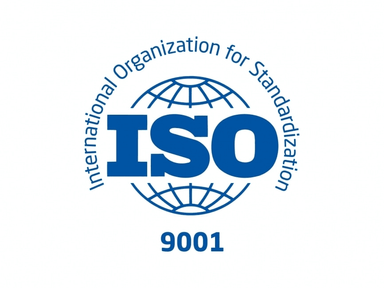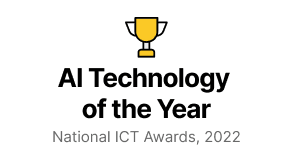2025-02-06
Introduction
The pharmaceutical industry has always been at the forefront of innovation, helping to develop new medicines and therapies to improve patient care interventions. However, the process involved, from drug discovery to market launch, is one of the longest and most expensive undertakings in the industry. Within the past few decades, the journey from drug discovery to market launch has been lengthy and costly, often requiring years of extensive research and clinical trials. The advancement of Artificial Intelligence (AI) and its integration into the healthcare industry has started to revolutionize processes, enabling companies to streamline operations, reduce costs, and improve the accuracy of treatments. This marks a significant shift in how the industry operates.
Machine Learning models are capable of analyzing large datasets more efficiently, often surpassing the pace of traditional human research. This allows for faster identification of potential drugs, improved clinical trial designs, and more personalized treatment plans tailored to individual patient needs. As pharmaceutical companies harness the potential of AI, they are entering a new era where drug development could become faster and more effective, significantly improving healthcare and patient care worldwide.
Uses of AI in the Pharmaceutical Industry
AI is revolutionizing the pharmaceutical industry by enhancing drug discovery, optimizing clinical trials, and advancing personalized medicine. Here are a few applications that promise to improve patient outcomes by improving the efficiency and effectiveness of pharmaceutical processes.
1. Drug Discovery and Development
AI has fundamentally transformed drug discovery and development, significantly reducing the time and costs involved. Pharmaceutical companies can analyze vast datasets comprising chemical structures, biological interactions, and historical research outcomes by employing techniques such as convolutional neural networks (CNNs), recurrent neural networks (RNNs), and graph-based models. These models can predict molecular interactions with biological targets, enabling the identification of promising compounds at a fraction of the traditional time. For instance, generative AI can propose new molecular structures that could be effective against specific diseases, streamlining the initial phases of drug discovery. AI also enhances drug efficacy and safety prediction by analyzing data from previous trials and preclinical studies. Techniques like reinforcement learning allow researchers to simulate and predict outcomes by training algorithms to optimize drug dosages, trial designs, and molecular interactions, allowing researchers to focus on the most effective drug candidates.
An example of this transformation is the work done by BenevolentAI during the COVID-19 pandemic. The UK-based biotech company utilized its AI platform to examine existing data from various sources, including scientific literature and clinical trial results, to identify potential treatments. Through this analysis, BenevolentAI pinpointed Baricitinib, a drug initially developed for rheumatoid arthritis, as a drug for COVID-19 treatment. This identification was based on the drug’s ability to inhibit a key protein involved in the inflammatory response triggered by the virus, showcasing how AI can accelerate the identification of effective drug candidates and streamline the initial phases of drug development.
2. Clinical Trials
The clinical trial phase is critical for testing new treatments, and AI has significantly improved this area. AI can enhance trial protocols by simulating various scenarios and outcomes. This allows researchers to design trials that are more likely to yield conclusive results and identify the most suitable endpoints for measuring success. AI algorithms can analyze patient records to identify individuals who meet specific eligibility criteria, speeding up recruitment. By ensuring that trials include participants most likely to benefit from the treatment, AI helps reduce the time and cost of finding suitable candidates. AI continuously analyzes incoming patient data during trials, detecting early signs of adverse reactions or unexpected outcomes. This approach allows for timely adjustments, improving overall trial safety and efficacy.
IBM Watson has leveraged AI to enhance patient recruitment for clinical trials. Its natural language processing technology scans medical records and trial protocols to match patients with suitable clinical trials based on their medical history and conditions.
3. Personalized Medicine
AI is at the forefront of advancing personalized medicine, tailoring treatments to individual patients based on their unique genetic and lifestyle factors. Deep learning models and natural language processing algorithms can analyze extensive patient datasets, including whole-genome sequencing data and electronic health records (EHRs), to provide precision medicine recommendations tailored to an individual’s unique genetic and clinical profile. This approach increases the likelihood of successful outcomes while minimizing the risk of adverse reactions. Advanced AI algorithms can interpret complex genetic data, identifying biomarkers associated with specific diseases. This capability enables the development of targeted therapies that address the underlying genetic factors of a patient’s condition, paving the way for more effective treatment options.
Tempus is an example of a technology company specializing in precision medicine. Tempus employs AI algorithms to analyze genomic data, providing personalized treatment recommendations for cancer patients. By processing and interpreting genomic sequencing data, Tempus identifies mutations and patterns that inform treatment decisions, enabling healthcare providers to create tailored treatment plans that target the specific genetic profiles of their patient’s tumors.
Considerations
Data Privacy and Security
One of the primary concerns when integrating AI into the pharmaceutical industry is data privacy and security. The sector handles vast amounts of sensitive patient information, subject to strict regulations such as GDPR in Europe and HIPAA in the U.S. As AI systems require access to this data for training and analysis, pharmaceutical companies must implement robust security measures to protect patient privacy and comply with legal requirements. Failure to do so could result in breaches of trust and legal repercussions.
To enhance data privacy and security, companies in the pharmaceutical industry can adopt some key techniques to ensure that patient information remains confidential while allowing pharmaceutical companies to leverage AI effectively for research and development.
1. Data Anonymization Techniques: Implement methods to remove personally identifiable information (PII) from datasets. This ensures that individual data points cannot be traced back to specific patients, thus safeguarding their identities.
2. Differential Privacy: Differential privacy adds statistical noise to datasets. This makes it difficult to identify individual data points while still allowing for meaningful analysis of the overall trends.
Integration with Existing Workflows
Another significant consideration is integrating AI systems with existing workflows and infrastructure. Many pharmaceutical companies operate with legacy systems that may not easily interface with advanced AI tools. This complexity requires careful planning and investment in technology upgrades to create a seamless workflow that minimizes disruptions. Organizations must assess their current infrastructure, identify potential integration challenges, and develop a strategic roadmap for effectively incorporating AI into their operations.
Ethical Implications of AI Decision-Making
AI algorithms must be designed to operate transparently and fairly, avoiding the perpetuation of existing biases in the training data. For example, if historical data reflects inconsistencies in treatment outcomes based on race or socioeconomic status, AI systems could unintentionally reinforce these inequalities. Establishing ethical guidelines and ensuring human oversight in AI processes are essential to fostering trust and ensuring that AI applications align with broader societal values.
Navigating Regulatory Requirements
Navigating the regulatory landscape is crucial for the deployment of AI in pharmaceuticals. The industry is heavily regulated, and the use of AI in drug development and clinical trials must comply with a range of requirements. Companies must coordinate closely with regulatory bodies to ensure that their AI models meet all necessary standards, which can demand considerable time and resources.
Need for Trained Personnel
There is a growing need for trained personnel to effectively manage and implement AI systems. The successful application of AI technologies relies on a workforce with the right data science, machine learning, and AI expertise. However, recruiting and retaining talent in this competitive market can be challenging. Pharmaceutical companies may need to invest in training and development programs for existing staff to bridge the skills gap and fully leverage AI capabilities.
For example, if historical data reflects disparities in treatment outcomes based on race or socioeconomic status, AI systems could unintentionally reinforce these inequalities. Establishing ethical guidelines and ensuring human oversight in AI processes are essential to fostering trust and ensuring that AI applications align with broader societal values.
Conclusion
Integrating AI into the pharmaceutical industry represents a transformative shift that enhances drug discovery, optimizes clinical trials, and advances personalized medicine. By leveraging AI's capabilities, pharmaceutical companies can significantly reduce costs and development times, ultimately leading to improved patient outcomes and more effective healthcare solutions. As the industry continues to evolve, the collaboration between AI technologies and pharmaceutical practices will be essential in driving innovation and meeting the challenges of modern medicine.
At Rootcode AI, we help enterprises and governments build end-to-end AI solutions. We partnered with Truentity Health, delivering AI-driven insights to enhance their platform, which aims to support chronic disease management, improve patient outcomes, and empower pharmacies to provide personalized care.
Let’s collaborate on your next project together!






